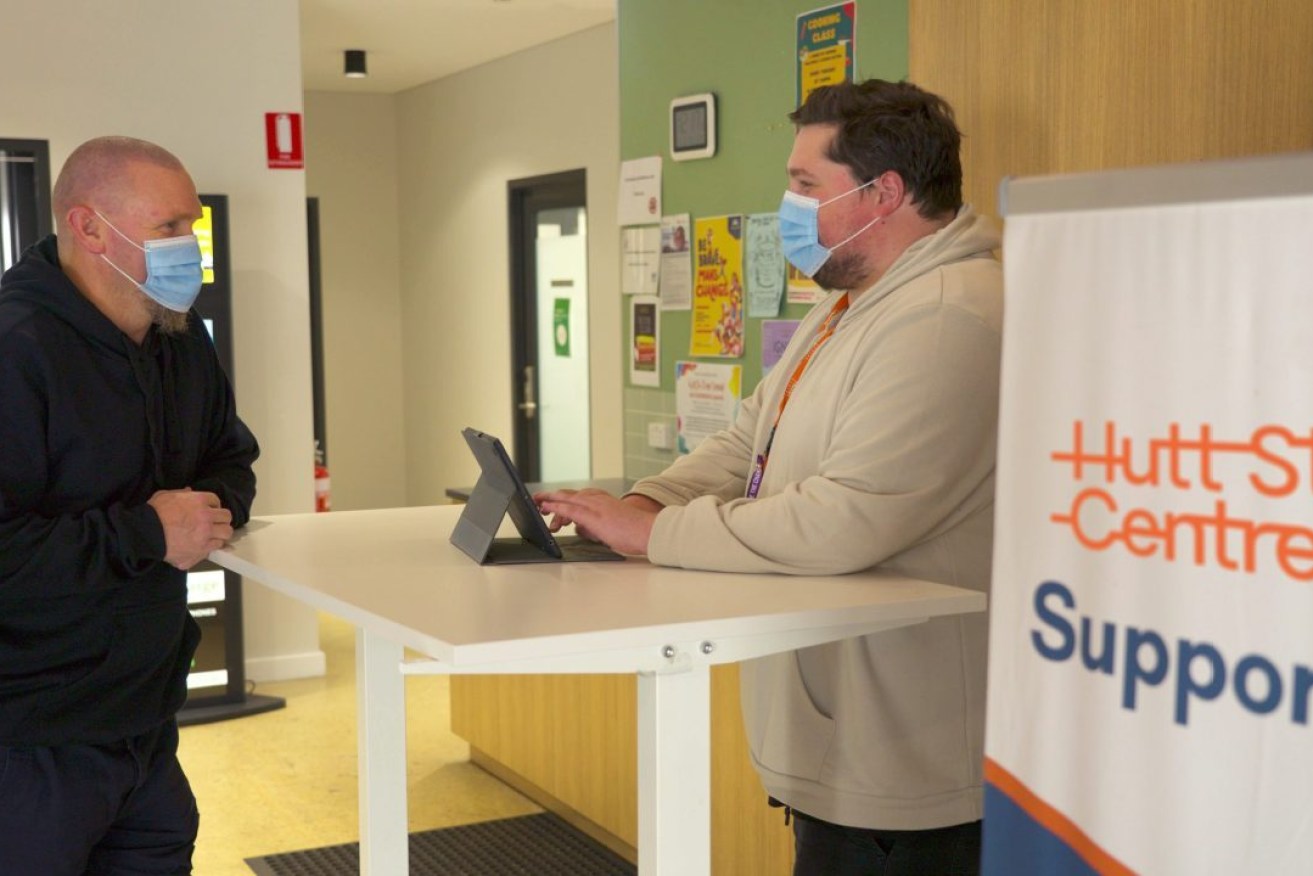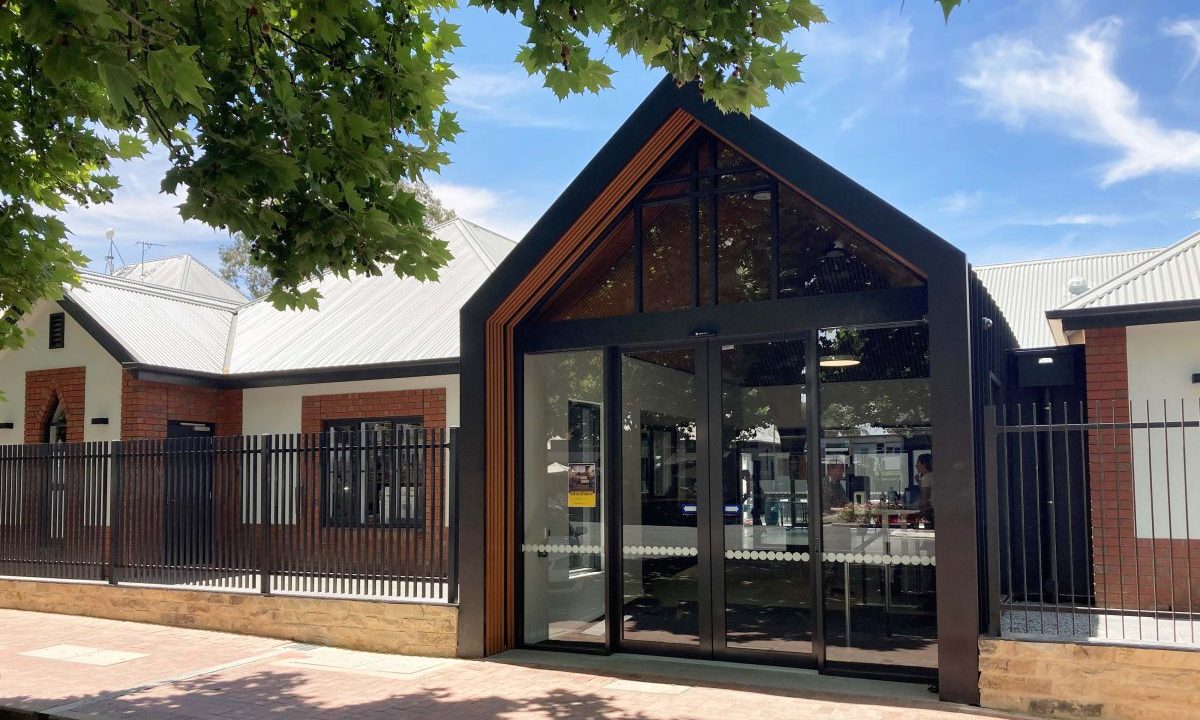
South Australian initiative, Aspire, helps end complex homelessness
Five years into its Aspire program to end homelessness, Hutt St Centre has made significant and welcome inroads.

Hutt St Centre's Aspire program is helping people experiencing homelessness get back on their feet.
Having a roof over one’s head is fundamental for a person’s physical and mental wellbeing. It provides a sense of place, pride, security and belonging.
Hutt St Centre has applauded the State Government’s recent commitment to build an additional 564 houses for South Australians in need and to stop the sale of 580 more.
The commitment is part of the government’s plan for A Better Housing Future, which commits $55.2 million over the next four years to build new houses and improve existing stock.
Hutt St Centre chief executive Chris Burns said additional housing is essential, but housing alone won’t end homelessness.
“It takes more than a roof and four walls to create homefulness,” Burns said.
“It requires long-term case management and meaningful opportunities to get people experiencing homelessness back on their feet.
“Homefulness is a feeling of safety, control and confidence that comes with having a place to call home.
“Our Aspire program has enabled more than 600 people to achieve homefulness.
“With support, they’ve improved their physical and mental health, found meaningful work, built relationships in their communities, and avoided interactions with police and the corrections system.”
Aspire is a practical solution to homelessness. It represents a landmark change in the way homelessness services are provided.
Hutt St Centre has been operating the Aspire program for more than five years through a Social Impact Bond (SIB) in conjunction with the State Government, Social Ventures Australia and Housing Choices Australia.
The program received generous additional funding from the Malinauskas government, allowing the Aspire program to extend intakes until the end of June 2023.
Burns said South Australians can take pride in the outstanding success of Aspire – the first SIB of its kind in Australia, with investors wanting to tackle an intractable social problem and create a program to deliver measurable outcomes for people experiencing complex homelessness.
Aspire proved sustained support significantly reduced reliance on government-funded services such as hospitals and health services, emergency accommodation, and demands on the justice system.
While Aspire demonstrated positive fiscal and social outcomes, Burns said seeing people find homefulness was invaluable.
Aspire participant, Michael, slept rough for five years following a job loss and relationship breakdown. Three years ago, when Michael first connected with his case manager, Jake, he had all but given up.
“Losing everything really destroyed my self-worth. I’d always been very driven but, when you keep getting knocked down, everything feels impossible,” Michael said.
“I was sleeping under a jetty and didn’t have a phone, let alone a place to charge it, so I’d often be hard to reach – but Jake never gave up.”
Through persistence and over many months, Jake convinced Michael that support was available and a better future possible.
“Having someone who believes in you means everything – so many people give up without that,” he said.
Michael reached rock bottom when he broke his back in a fall at night while searching for a place to sleep. After recovering in hospital, Jake worked with hospital social workers to prepare Michael for discharge into emergency accommodation.
While Michael focused on recuperating, Jake secured him a permanent home, so he wouldn’t have to face the streets again.
“I’ve got a roof over my head again, but it’s so much more than that. Jake and the team have helped me through the toughest years of my life,” Michael said.
“Even when I was ready to give up on myself, they never did. They helped me believe in myself again… Now I really feel like things will be okay.”

Hutt St Centre’s Wellbeing Centre
Aspire recognises that complex homelessness, like Michael experienced, can only be resolved with a multi-disciplinary approach.
Through three years of individualised case management, the program provides comprehensive support linking people with health and wellbeing services, access to training and employment, and opportunities for community connections.
It guides participants on the journey to find a home and, once there, supports them with a range of integrated services to ensure they achieve homefulness.
Five years into the seven-year SIB (to 30 June 2022), 575 people had enrolled in Aspire, collectively avoiding an estimated 5,235 hospital bed days, 940 criminal convictions and 2,122 periods of emergency accommodation, measured relative to past service usage levels.
The cost of these avoided services equates to government savings of almost $12.5 million. Aspire participants are also projected to use fewer services into the future, generating further savings of an estimated $12.6 million.
An independent evaluation of Aspire, commissioned by the State Government and undertaken by the Centres for Social Impact at Flinders University and the University of Western Australia, reported significant outcomes among Aspire participants:
- Emergency Department presentations decreased by 27%
- Hospital bed nights decreased by 32%
- The average number of hospital admissions per person dropped by 60%
- Overnight stays in emergency accommodation decreased by 68%
- Criminal offences decreased by 60%
- Court appearances reduced by 69%
- Convictions fell by 28%
- Imprisonments reduced by 55%.
“Our team’s intensive work with Aspire participants has greatly lessened the reliance on health and hospital systems, and correctional services,” Burns said.
“Hundreds of people like Michael have found the opportunity to reclaim control of their lives, reconnect with the community, and focus on the future with confidence.
“Housing initiatives are a welcome and necessary starting point, but these outcomes are only possible with the long-term support provided by Aspire.”




